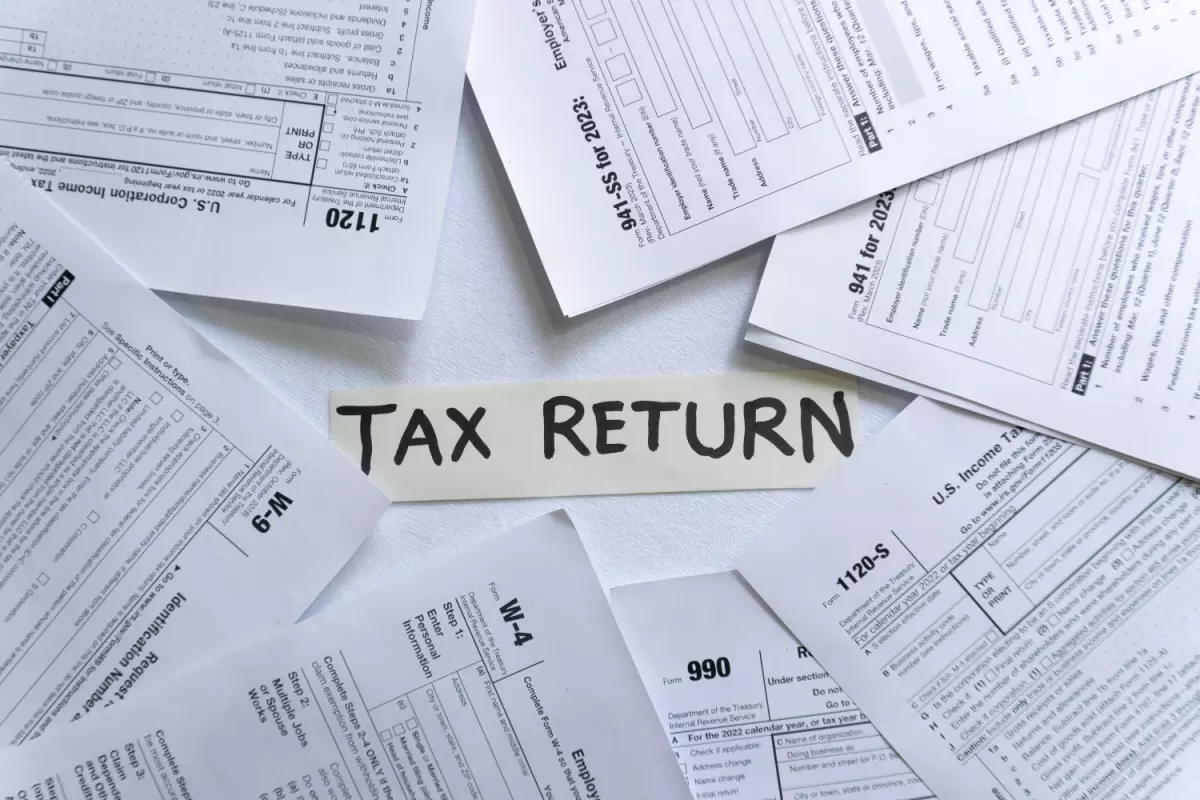Can the IRS Come After Me for My Parents’ Debt?
Inheriting your parents’ eyes or their love for books might be delightful, but what about their debt? Join us as we delve into the intricacies of IRS rules, and understand if you could be held responsible for your parents’ financial obligations.
In this blog post, we’ll delve into what happens if a deceased person owes taxes, explore different types of debts parents might leave behind, and provide tips to prevent debt inheritance. We aim to provide you with knowledge, clarity, and peace of mind in these challenging circumstances.
Disclaimer: This article is not a source of legal advice but aims to provide information on general principles related to finance and tax. It is recommended to seek professional advice concerning finance and tax law matters
What Happens if a Deceased Person Owes Taxes
When a person passes away, their tax obligations don’t simply vanish into the air. The IRS can claim taxes due from the deceased person’s estate. This may include unpaid income taxes, capital gains taxes, and estate taxes.
Generally, an executor is appointed in a will to manage the deceased person’s estate. This role can fall on a family member or a close friend, but it can also be a professional like an attorney. An executor of a will typically carries out the directions and requests in the will.

The executor’s primary duties include the following:
- Identifying, gathering, and managing the deceased’s assets.
- Paying any taxes or debts owed by the deceased from the estate. This could include filing the final income tax return and, if necessary, a federal estate tax return.
- Distributing the remaining assets to the beneficiaries as stipulated in the will.
- Carrying out other instructions and wishes of the deceased as specified in the will, which could include anything from arranging a specific funeral to donating to a designated charity.
If a deceased person owes taxes, the executor will use the assets in the estate to settle these taxes. Note that this is done before any inheritance is distributed.
However, tax payments can become challenging when the estate lacks sufficient assets to cover these taxes. In these situations, the IRS may require the executor to liquidate other estate assets – like property or investments – to meet the outstanding tax obligations.
But here’s some relief: the IRS can’t hold children accountable for their parents’ unpaid taxes unless specific agreements exist, like a child co-signing a loan or being a business partner.
Thus, heirs or surviving family members are typically not personally liable for the unpaid taxes of a deceased person. In other words, if you’re wondering, “Can the IRS come after me for my parents’ debt?” generally, the answer is no.
What Types of Debts They Can Leave Behind
In the realm of inheritance, each type of debt carries its weight and implications. Let’s take a journey on the different types of debts your parents could leave behind.
Income Tax Debt
Income tax debt arises when a person has not fulfilled their obligation to pay income taxes due during their lifetime. This could happen if your parents did not file or pay their taxes for any given year, in which case, the IRS could request these unpaid taxes from the estate. For instance, if your parents had an outstanding tax debt from 2023, the amount would need to be settled using assets or funds from their estate.
Estate Tax Debt
Estate tax debt refers to taxes due on the total value of a deceased person’s money and property, their ‘estate.’ If the value of your parents’ estate exceeded the estate tax exemption limit, which stands at $12.92 million as of 2023, the IRS could assess estate taxes on the value above this threshold.
Mortgage Debt
Mortgage debt is a secured debt linked to a specific asset – typically a house. If your parents were still paying off a home loan at their demise, the responsibility to clear this debt usually falls on their estate.

As an heir, if you wish to retain the property, you may have to take on the mortgage payments, depending on the loan’s terms. Otherwise, the outstanding mortgage debt will be covered using the funds and assets in your parent’s estate.
Medical Debt
Medical debt can pose a significant concern, especially when considering whether such liabilities can transfer to offspring. If your parents accrued medical debt, assets and funds from the estate will be used to pay it off.
Generally, children are only held liable for their parent’s medical debts if they have co-signed explicitly for them. However, laws can vary by state, and it’s always prudent to seek the counsel of a legal advisor under such circumstances.
Addressing Co-Signed Debt
While children generally will not be responsible for their parent’s debts, there is one exception. If you co-signed a loan with your parents, you could be liable after they pass. Be it a mortgage, a car loan, or a credit card, co-signing implies that you have promised to pay off the debt if the primary borrower cannot make the payments.
When your parents leave behind a debt you’ve co-signed, the responsibility falls on your shoulders. Let’s say you co-signed your parents’ mortgage. If the mortgage isn’t paid off at the time of their passing, you become responsible for the remaining payments. If payments aren’t made, the lender has the right to seize the property.
However, it’s not all doom and gloom. There are a few steps you can take if you find yourself in this predicament. First, keep open communication with your lender. They may be willing to negotiate terms or help you find a feasible repayment plan.
Second, consult a financial advisor or a credit counselor who can guide you in responsibly managing the debt. If possible, consider consolidating your debts to simplify repayments and potentially lower interest rates. Lastly, don’t forget to contact an attorney to explore any legal protections available to you.
What Happens if You Don’t File Taxes for a Deceased Person?
The maze of financial obligations following a loved one’s death is complex, with tax responsibilities at its core. But what if those taxes go unfiled? This oversight can lead to a cascade of problems.

In this section, we’ll explore the consequences of neglecting to file taxes for a deceased person.
1. Penalties and Interest
Fail to file the taxes on time, and you’re inviting penalties and interest on the unpaid amount. The IRS will impose late-filing and late-payment penalties that can quickly accumulate, adding an extra burden to the estate.
2. Delays in Distribution of Assets
Neglecting tax obligations may delay the probate process. The executor must settle all financial matters, including taxes, before distributing assets to the heirs. A hiccup in this process can lead to time-consuming and stressful delays, keeping beneficiaries waiting.
3. Legal Repercussions
Ignoring tax responsibilities could potentially result in legal action. Executors have a fiduciary duty to manage the estate responsibly. Failure to meet tax obligations might be seen as a breach of that duty, leading to legal troubles.
4. Complications with Co-Signed Debts
As we explored earlier, if you’ve co-signed a loan with the deceased, any failure to manage tax obligations properly could directly impact you. You could be held responsible for the tax, which could negatively impact your credit score.
5. Difficulty in Selling Estate Property
Should the estate require the sale of the property to pay off debts, including taxes, failure to file or pay taxes can complicate the process. Potential buyers and real estate professionals might hesitate to get involved in a transaction tangled in tax issues.
Tips to Prevent Debt Inheritance in Case of a Death in the Family
Navigating the financial aftermath of a loved one’s demise can feel like traversing a stormy sea. The prospect of inheriting debt can amplify this uncertainty.
However, you can chart a smoother course with a compass of knowledge and some proactive steps. It’s not just about avoiding debt inheritance but also a part of your family’s financial planning.
Open Communication
Ignorance isn’t bliss when it comes to finance. Encourage honest conversations about financial health within your family. Understanding your parent’s financial situation, responsibilities, and plans can provide a road map should the worst occur.
Estate Planning
Encourage your parents to establish a will and, if beneficial, a living trust. It’s a delicate conversation but a necessary one. A will ensures their assets are distributed according to their wishes, while a living trust can help avoid the probate process (the legal procedure of validating a will and settling an estate), saving time and expense.
Life Insurance
A well-structured life insurance policy can provide a financial buffer. However, note that policies often come with exceptions – certain circumstances or types of death may not be covered, resulting in the non-payment of the policy.

However, when properly aligned with the policy’s terms, the payout from life insurance can help cover any unpaid debts and leave something for the heirs. It’s like an umbrella that keeps you dry during a downpour, provided the terms of coverage are met.
Debt Review
Regularly reviews your parents’ debts, especially those you co-signed. This helps you stay informed and prepared. But remember, as a co-signer, you’re legally responsible for repaying the debt if your parents can’t. Although we don’t want to think of the worst-case scenario, you should consider whether you can take on the payments if your parents pass. If you are uncertain about your financial situation, openly communicate with your parents prior to agreeing to co-sign the loan.
Legal Advice
Consider hiring an attorney to understand the nuances of estate and inheritance laws in your state. An attorney’s role extends beyond mere advice. They are responsible for interpreting the laws relevant to your situation, representing your interests in legal matters, preparing and reviewing legal documents, and guiding you through the estate settlement process. Their expert advice can help prevent pitfalls, navigate complex legal processes, and protect your rights and interests.
Remember, these tips are general guidelines rather than hard-and-fast rules. Every situation is unique, so consider seeking advice from a professional for personalized guidance.
Final Takeaways: Can You Inherit Your Parent’s Debt?
So, does your parents’ debt become yours?
In most cases, the answer is no. Debts are generally paid out of the deceased person’s estate. However, note that each state has its own laws regarding debt inheritance, and there are exceptions to these general rules.
Planning, communicating openly, and involving professionals in your family’s financial planning can help avoid potential pitfalls. While the question of “who is responsible for deceased parents’ taxes” can be concerning, knowing the law and preparing in advance can provide peace of mind.
Table of Contents
- What Happens if a Deceased Person Owes Taxes
- What Types of Debts They Can Leave Behind
- Income Tax Debt
- Estate Tax Debt
- Mortgage Debt
- Medical Debt
- Addressing Co-Signed Debt
- What Happens if You Don’t File Taxes for a Deceased Person?
- Tips to Prevent Debt Inheritance in Case of a Death in the Family
- Open Communication
- Estate Planning
- Life Insurance
- Debt Review
- Legal Advice
- Final Takeaways: Can You Inherit Your Parent’s Debt?